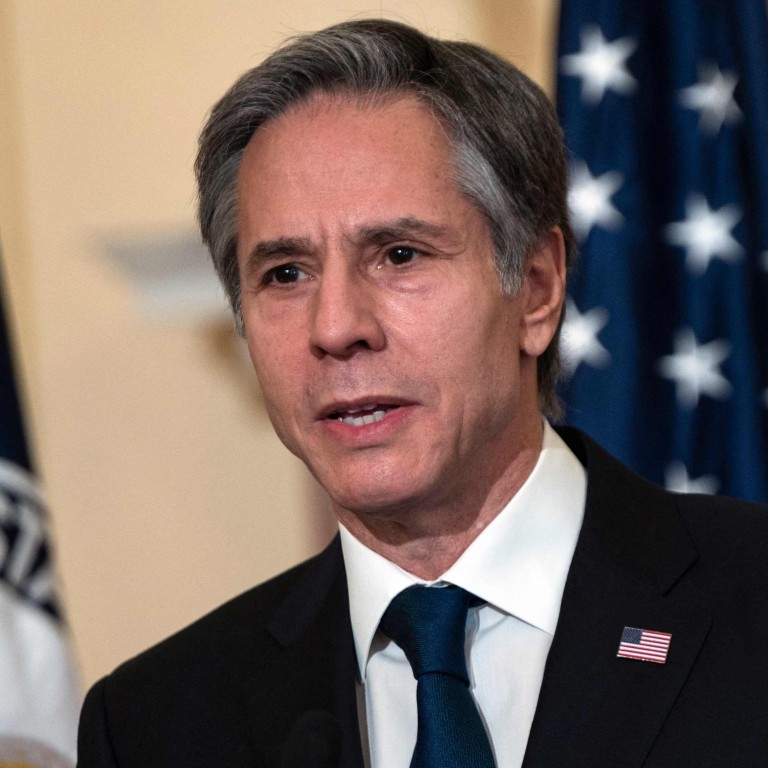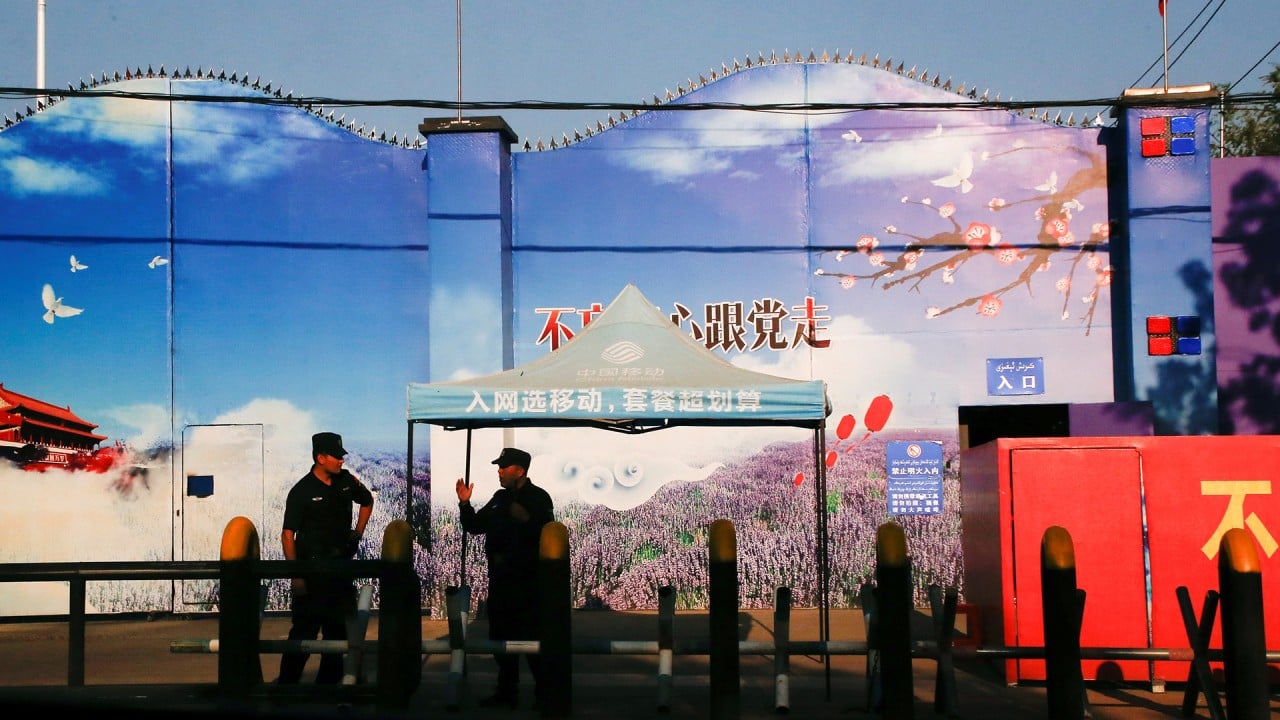
Antony Blinken says China poses 21st century’s greatest geopolitical challenge
- Address by US secretary of state urges ‘standing up for our values when human rights are abused in Xinjiang or democracy is trampled in Hong Kong’
- Blinken stresses a foreign policy that sheds bluster and bullying and shores up ties with allies
China is the biggest geopolitical challenge that United States faces in the 21st century, one that pales beside the likes of Russia or the Middle East, the US secretary of state said on Wednesday in an address outlining the Biden administration’s foreign policy priorities.
If the US does not push back on China’s efforts to “trample democracy” and undercut human rights, Beijing will only become more emboldened, Blinken said in a video presentation from the State Department.
“China is the only country with the economic, diplomatic, military and technological power to seriously challenge the stable and open international system,” he said. “Our relationship with China will be competitive when it should be, collaborative when it can be and adversarial when it must be.
“The common denominator is the need to engage China from a position of strength.”
Blinken’s speech echoed a 23-page “interim national security strategic guidance” document released by Biden a few hours later designed to “provide direction to departments and agencies in advance of a new national security strategy, which we expect to release later this year,” White House press secretary Jen Psaki said on Wednesday.
Blinken said the United States needed to turn a page and pursue a foreign policy that combines humility and confidence – not bluster and bullying – and shore up ties with allies, partners and multinational organizations to pursue its core interests.
“Where we pulled back, China has filled in,” he said. “It requires standing up for our values when human rights are abused in Xinjiang or democracy is trampled in Hong Kong because if we don’t, China will act with even greater impunity.”
In addition to those parts that mentioned China, major sections of the 30-minute speech also involved it implicitly.
Antony Blinken confirmed as top US diplomat
These included the need to share information quickly and completely on Covid-19 and future diseases – China has been harshly criticised for its lack of transparency – and the urgency of tackling global climate change; the importance of securing US leadership in technology; and the need to defend democracy.
“Shoring up our democracy is a foreign policy imperative,” Blinken said. “Otherwise we play right into the hands of adversaries and competitors, like Russia and China, who seize every opportunity to sew doubts about the strength of our democracy.”
“We shouldn’t be making their jobs easier.”
The speech sought to draw a bright line between the style and substance of Biden’s foreign policy approach and the “America First” approach of former president Donald Trump.
In contrast to Trump’s themes of xenophobia, closed borders, distrust of allies and scepticism toward institutions, Blinken focused on the need for collective global action and the importance of ensuring that American foreign policy benefited American workers.
“Those of us who conduct foreign policy have not always done a good job connecting it to the American people,” he said. “Distinctions between domestic and foreign policy have simply fallen away. Our domestic renewal and our strength in the world are completely entwined.”
Analysts said Blinken’s speech and the “strategic guidance” report served at least three objectives: to signal American resolve to China; to communicate to allies that China is a threat worthy of cooperation; and to avoid appearing weak on China to Republican critics.
“The challenge for the administration is to develop a policy and diplomacy that treats China as a competitor but doesn’t demonise China and that doesn’t present the United States as an implacable adversary,” said Robert Ross, professor of political science at Boston College.
One of the biggest global challenges facing the nation will be securing US leadership in technology, from artificial intelligence to quantum computing, at a time when the world’s leading powers are in a race for primacy, Blinken said.
US must face artificial intelligence competition from China, report says
But that technology will not be universally beneficial, he added. Some countries are keen on using it to intrude on individual liberty and privacy, he said, without explicitly mentioning China and Russia, making it incumbent on friends and partners to help create guardrails and strengthen defences.
Blinken’s speech focused largely on challenges with China and made little mention of potential areas of cooperation. with China. In a separate press conference, however, State Department spokesman Ned Price expressed hope that Beijing could intercede in Myanmar, where the military staged a coup against the civilian government last month.
“We are looking for China to play a constructive role in the restoration of civilian-led government in Burma,” Price said.
Biden has referred to Beijing as America’s “most serious competitor” and his administration has indicated it will broadly continue the tough approach taken by Trump.

02:27
US declares China has committed genocide in its treatment of Uygurs in Xinjiang
A Pew Research survey in October found that 73 per cent of respondents in 14 industrialised countries saw China unfavourably – a double-digit rise over 2019 – China’s worst score ever.
“Our combined weight is much harder for China to ignore,” Blinken said.
That’s easier said than done, however. Many allies are distrustful of Washington after four years of being whipsawed by the Trump administration. Finding common ground is also challenging given disparate interests over national security, investment and 5G telecommunication issues.
Anticipating Biden’s strategy, China has also stepped up efforts to divide, conquer and otherwise avoid being isolated, seen in December’s announced EU-China Comprehensive Agreement on Investment.
Blinken said that diplomacy must come first and that Washington would not pursue “costly military interventions” to promote democracy. “We have tried these tactics in the past,” he added. “However well-intentioned, they haven’t worked.”
Additional reporting by Jacob Fromer and Owen Churchill

